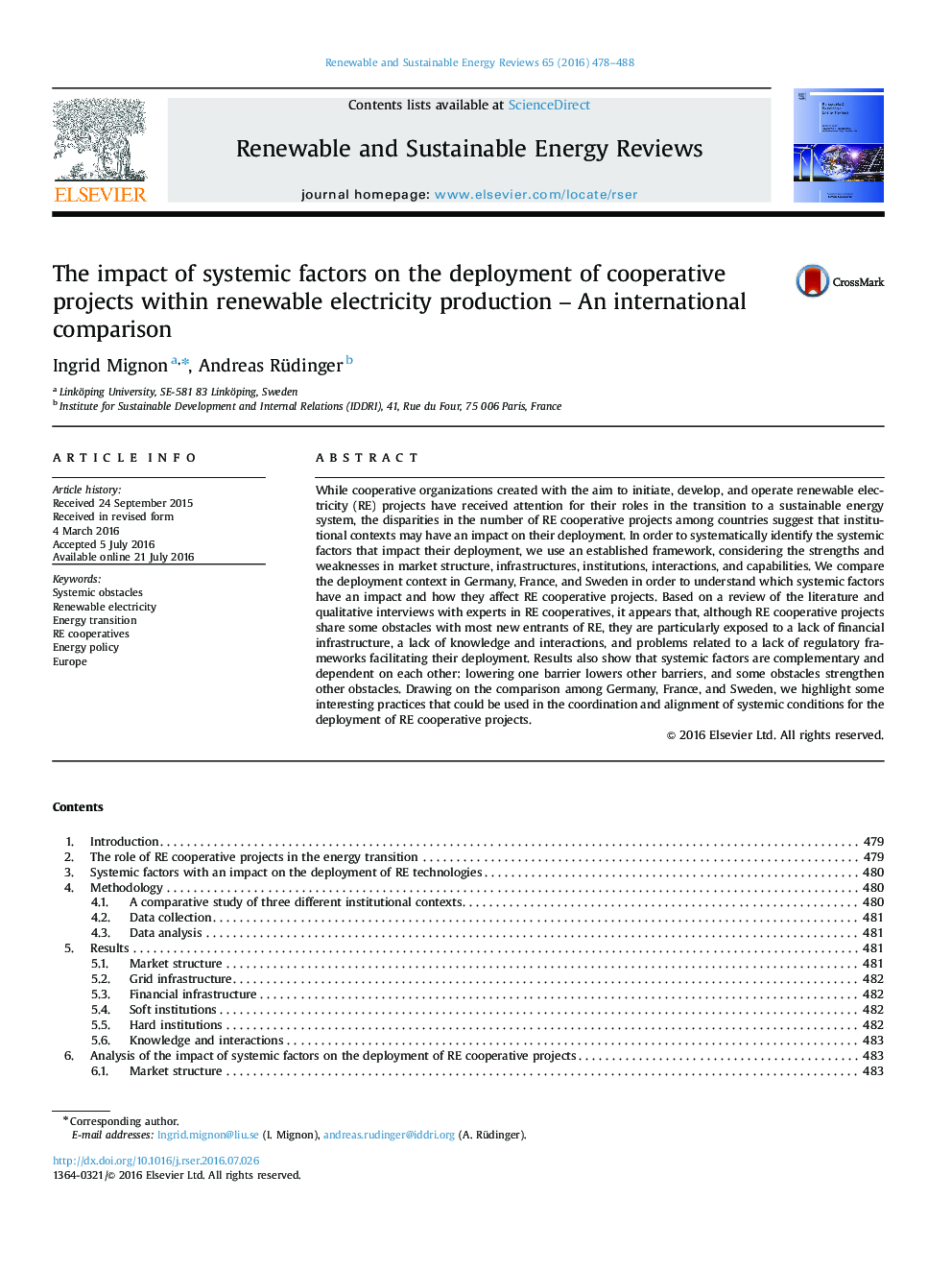| Article ID | Journal | Published Year | Pages | File Type |
|---|---|---|---|---|
| 8112858 | Renewable and Sustainable Energy Reviews | 2016 | 11 Pages |
Abstract
While cooperative organizations created with the aim to initiate, develop, and operate renewable electricity (RE) projects have received attention for their roles in the transition to a sustainable energy system, the disparities in the number of RE cooperative projects among countries suggest that institutional contexts may have an impact on their deployment. In order to systematically identify the systemic factors that impact their deployment, we use an established framework, considering the strengths and weaknesses in market structure, infrastructures, institutions, interactions, and capabilities. We compare the deployment context in Germany, France, and Sweden in order to understand which systemic factors have an impact and how they affect RE cooperative projects. Based on a review of the literature and qualitative interviews with experts in RE cooperatives, it appears that, although RE cooperative projects share some obstacles with most new entrants of RE, they are particularly exposed to a lack of financial infrastructure, a lack of knowledge and interactions, and problems related to a lack of regulatory frameworks facilitating their deployment. Results also show that systemic factors are complementary and dependent on each other: lowering one barrier lowers other barriers, and some obstacles strengthen other obstacles. Drawing on the comparison among Germany, France, and Sweden, we highlight some interesting practices that could be used in the coordination and alignment of systemic conditions for the deployment of RE cooperative projects.
Related Topics
Physical Sciences and Engineering
Energy
Renewable Energy, Sustainability and the Environment
Authors
Ingrid Mignon, Andreas Rüdinger,
